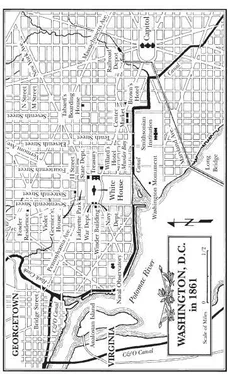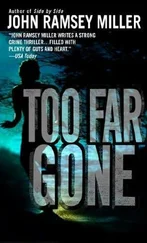John Miller - The First Assassin
Здесь есть возможность читать онлайн «John Miller - The First Assassin» весь текст электронной книги совершенно бесплатно (целиком полную версию без сокращений). В некоторых случаях можно слушать аудио, скачать через торрент в формате fb2 и присутствует краткое содержание. Жанр: Исторический детектив, на английском языке. Описание произведения, (предисловие) а так же отзывы посетителей доступны на портале библиотеки ЛибКат.
- Название:The First Assassin
- Автор:
- Жанр:
- Год:неизвестен
- ISBN:нет данных
- Рейтинг книги:3 / 5. Голосов: 1
-
Избранное:Добавить в избранное
- Отзывы:
-
Ваша оценка:
- 60
- 1
- 2
- 3
- 4
- 5
The First Assassin: краткое содержание, описание и аннотация
Предлагаем к чтению аннотацию, описание, краткое содержание или предисловие (зависит от того, что написал сам автор книги «The First Assassin»). Если вы не нашли необходимую информацию о книге — напишите в комментариях, мы постараемся отыскать её.
The First Assassin — читать онлайн бесплатно полную книгу (весь текст) целиком
Ниже представлен текст книги, разбитый по страницам. Система сохранения места последней прочитанной страницы, позволяет с удобством читать онлайн бесплатно книгу «The First Assassin», без необходимости каждый раз заново искать на чём Вы остановились. Поставьте закладку, и сможете в любой момент перейти на страницу, на которой закончили чтение.
Интервал:
Закладка:
“We’ll try not to let you down,” said Portia.
“You hungry?”
“As a matter of fact, we are.”
“Then I’ll go now and bring some food. I may be an hour or two, but I’ll be back.” Jeremiah splashed into the stream, crossed it, and then ran into the trees.
“You’re right about one thing: if we can’t trust him, we’re done,” said Joe. “It just seems to me there was one way of makin’ sure he doesn’t tell anybody about us.”
“Joe!” said Portia. She wanted to think they had found a friend.
“Our lives are at stake, Portia.”
She frowned. “I think we can trust him-or else why would he have led us here?”
“I hope you’re right.”
Joe picked up a skipping stone and whisked it into the stream. It bounced three times and sank. He tossed a few more without better results. Then he and Portia decided to rest. They would need to save their energy. They would leave again at dark, whether or not Jeremiah returned.
As he approached Lafayette Park, Springfield yawned. He wanted a cup of coffee. Across the park, about a city block away, was Grenier’s home on Sixteenth Street. When it came into view, he did not expect to see anything. To his surprise, the door opened and a man stepped out.
Springfield looked away quickly. He was in uniform for a change and did not want to be seen staring, even from a distance. He slowed his pace and strained to keep the man in his peripheral vision. Was it one of the fellows from yesterday? Springfield hoped so, if for no other reason than it would provide him with new information for Rook.
Grenier’s visitor walked in the same direction as Springfield, but on H Street, which bounded the park on its north side. As the man reached the edge of the park, where it touched Vermont Avenue, Springfield shifted into pursuit. He remained about half a block behind the man, who stayed on H Street as he passed Fifteenth Street, Fourteenth, Thirteenth, and kept going.
Seeing the man only from behind, Springfield could not get a good view of him-except to become certain that he was not one of those who had visited Grenier a day earlier. He was sandy haired and clean shaven. To get a better view, Springfield walked to catch up and soon was about twenty feet behind the man. He crossed Twelfth Street, Eleventh, and Tenth at a steady pace. At Eighth Street, he turned his head, and Springfield saw the man’s face in profile. He did not recognize it, but he knew he would not forget it: the man’s right ear was half missing.
Grenier’s visitor kept moving, now across Seventh Street. Before arriving at Sixth Street, however, he slowed down and entered a building on his right. Springfield had dropped back from his closest approach and could not tell what it was. He lingered at the corner of Seventh and H Street, waiting to see if the man would come out again. After about five minutes, Springfield decided to proceed down H Street. He made certain to note the building in question. It was a boardinghouse, addressed 604 H Street.
At Sixth Street, Springfield turned to the right and took about a dozen steps before stopping. The boardinghouse was around the corner and out of sight. He thought about what to do next. Rook had wanted to meet near Brown’s, but should he stick around, trying to learn more about Grenier’s guest?
It occurred to him that the only reason this new visitor to the Grenier residence intrigued him was the fact that yesterday she had received different visitors whom Rook had regarded as potentially significant. Was there any connection between the two? He had no basis for thinking so.
He walked south on Sixth Street, in the direction of Pennsylvania Avenue. On the way, Springfield thought about coffee.
It was late afternoon when the sound of Jeremiah wading through the stream woke Portia and Joe. He arrived with a pot of stew in a satchel. He sat as they ate, and then he cleaned the pot in the stream.
“I’ve got one more thing for you,” he said. “Grave dust.”
Portia and Joe knew immediately what he was talking about. Some slaves believed that wiping feet with cemetery soil-grave dust-removed all traces of scent and made it impossible for dogs or trackers to continue a search. The runaways watched Jeremiah pull a bag from the satchel. It was full of dry, gray dirt.
Joe looked at Portia. “Do you believe in this?”
“One time I asked my grandfather if ghosts were real.”
“What did he say?”
“He said, ‘Don’t pretend that such things can’t be.’”
Portia took a handful of grave dust and wiped it on her feet and legs. She smiled at Joe, who was not sure whether she was doing this for their benefit or Jeremiah’s. The boy certainly seemed to view the grave dust with great seriousness. He had saved it for last-after leading them to the hideout, after giving them food. It was his parting gift. Joe thought that perhaps he should take some just as a courtesy.
Suddenly in the distance, the three slaves heard a sound that made them shiver: barking.
“Well, I’m ready to become a believer,” said Joe, reaching for the bag of grave dust. “We’re gonna need all the help we can get.”
When Rook wanted to concentrate on a difficult problem, he liked to go for a stroll-not to a quiet place, but a noisy one. For whatever reason, the commotion of a crowd encouraged fresh thinking. And so he found himself at Center Market, the busiest commercial hub in the city. It was a sprawling structure that took up two entire blocks on the south side of Pennsylvania Avenue between Seventh and Ninth streets. Farmers and fishermen from across the region descended on it every morning before sunrise to sell their wares. Rook walked beside dozens of wagon stands outside the building, only half aware of the salesmen shouting their prices and the customers who haggled with them.
It did not hurt that Center Market was near Brown’s Hotel-the site of the puzzle that had vexed him since the previous afternoon, and where Springfield and Clark were monitoring Davis and Stephens. Not by rail, river, or road. What could it possibly mean?
Rook wandered down the market’s crowded aisles, trying to ignore the overpowering stench of fish that came from the stalls piled high with bass and shad from the Potomac. Sellers stocked all kinds of food-venison, ducks, turkeys, oysters, and lots of vegetables-but the smell of fish drifted through the whole building.
He wondered whether he was right to defy Scott’s orders. In a strict military sense, of course, he was in the wrong-it was always wrong to disobey a direct order from a superior officer. Yet Rook was convinced that Scott’s judgment was mistaken. It bordered on dereliction of duty. The old general simply did not take the president’s protection as seriously as he should. Rook was certain Davis and Stephens were up to something. He could not prove it in a court of law or to the satisfaction of Scott, but he had no doubt.
Reaching the end of a row of wagon stands, Rook found himself at Seventh Street-and with a clear view of Brown’s Hotel. A horse-drawn omnibus waited outside the hotel as it took on several passengers. This was a popular form of transportation up and down the Avenue, between Capitol Hill and Georgetown. When the horse started pulling, Rook made a sharp right-hand turn into Center Market itself, where nobody on the street would be able to spot him.
Not by rail, river, or road. Didn’t Davis mention a “shipment”? He might have used a different word, such as “load” or “delivery” or “consignment.” But he said ship ment. That would suggest a cargo arriving on a ship, which meant over water, which meant by river. Yet Davis seemed to rule out that possibility. Rook told himself not to get snared in semantic games. Shipments might mean anything, even goods transported by train. He started to wonder. Maybe Davis and Stephens were playing games with him. Perhaps Scott was right, and it was all just a waste of time.
Читать дальшеИнтервал:
Закладка:
Похожие книги на «The First Assassin»
Представляем Вашему вниманию похожие книги на «The First Assassin» списком для выбора. Мы отобрали схожую по названию и смыслу литературу в надежде предоставить читателям больше вариантов отыскать новые, интересные, ещё непрочитанные произведения.
Обсуждение, отзывы о книге «The First Assassin» и просто собственные мнения читателей. Оставьте ваши комментарии, напишите, что Вы думаете о произведении, его смысле или главных героях. Укажите что конкретно понравилось, а что нет, и почему Вы так считаете.












